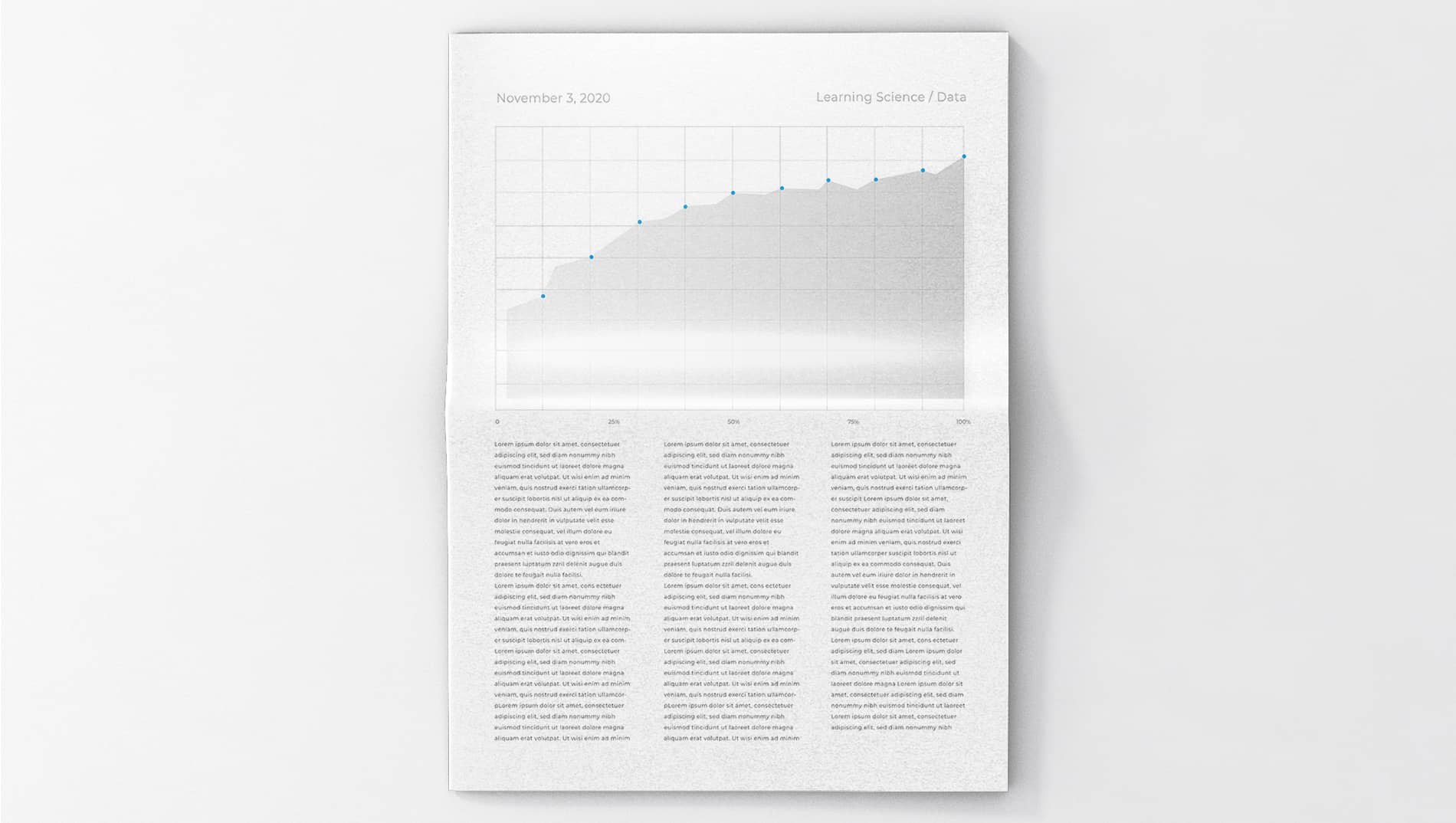Self-Reflection: How to Leverage for Better Academic and Exam Outcomes
Regardless of where you are in your education journey, you face the challenging task of mastering a vast amount of essential scientific and medical knowledge all the while developing critical thinking and clinical reasoning skills within a short time. Whether you’re in medical school, residency, nursing school, or physical therapy school, the complexity and breadth of what you need to learn can feel overwhelming. However, research shows that regular self-reflection can significantly enhance learning performance and progress, leading to better academic and licensure exam outcomes.
The learning doesn’t stop there; due to the dynamic and rapidly evolving nature of healthcare advancements, practitioners must stay adaptable and continuously intake new information to refine their skills. This calls for lifelong learning habits that need to start while in training and carry through to clinical practice.
Research has revealed one tool that can help you stay on track throughout school and in future practice: self-reflection. Incorporating this practice into your study plans has been shown to enhance learning performance and progress, leading to better academic and licensure exam outcomes and helping you become a better provider in the future.
So what is self-reflection and why is it such an important habit to establish in training?
To help you get started, download our Post-Assessment Self-Reflection Questionnaire and begin your journey toward becoming a more effective and reflective learner.
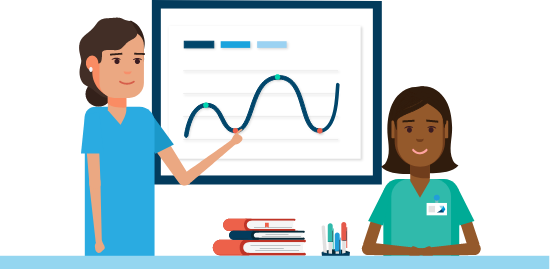
Understanding Self-Reflection
Self-reflection involves looking back at your thoughts, actions, and learning processes to gain insights and improve future performance. It ties closely with the concept of metacognition, which is essentially “thinking about thinking.” By developing self-awareness about how you learn, what motivates you, and what strategies work best for you, you can tailor your study methods to be more effective. By understanding your learning process, you can ensure you retain critical knowledge and apply it effectively in real-world scenarios, ultimately leading to better patient care.
One way to easily establish the habit of self-reflection is to incorporate reflection following assessments, whether they are faculty-assigned or practice tests you’ve created and taken on your own. You’ll get even better results if you pair the practice with TrueLearn’s SmartBanks of board-style practice questions that mirror the content and format of those found on the real-world exam. These questions can be pulled into tests and incorporated into your study routine, providing the opportunity for not only leveraging the powerful effects of retrieval practice and spaced repetition in your studies to enhance learning, retention, and recall but also present the opportunity to engage in self-reflection practices. Additionally, TrueLearn provides mock assessments containing completely different questions from those in the SmartBank to help simulate the real-world exam.
Here’s how you can cultivate habits of self-reflection with TrueLearn to achieve better academic outcomes.
How to Use Self-reflection while Studying
Leveraging TrueLearn to incorporate practice tests into your study routine allows you to apply theoretical knowledge to practical scenarios, letting you measure comprehension and reinforce learning. TrueLearn provides detailed rationales for each answer choice, helping you solidify your understanding and lock in long-term retention. Incorporating self-reflection into your use of practice tests can enhance your learning even further and here are 3 ways to do it:
#1 While taking tests in the TrueLearn platform, utilize the Mark feature to flag questions that you want to refer back to after completing the test. This feature will also allow you to create future tests including previously marked questions.
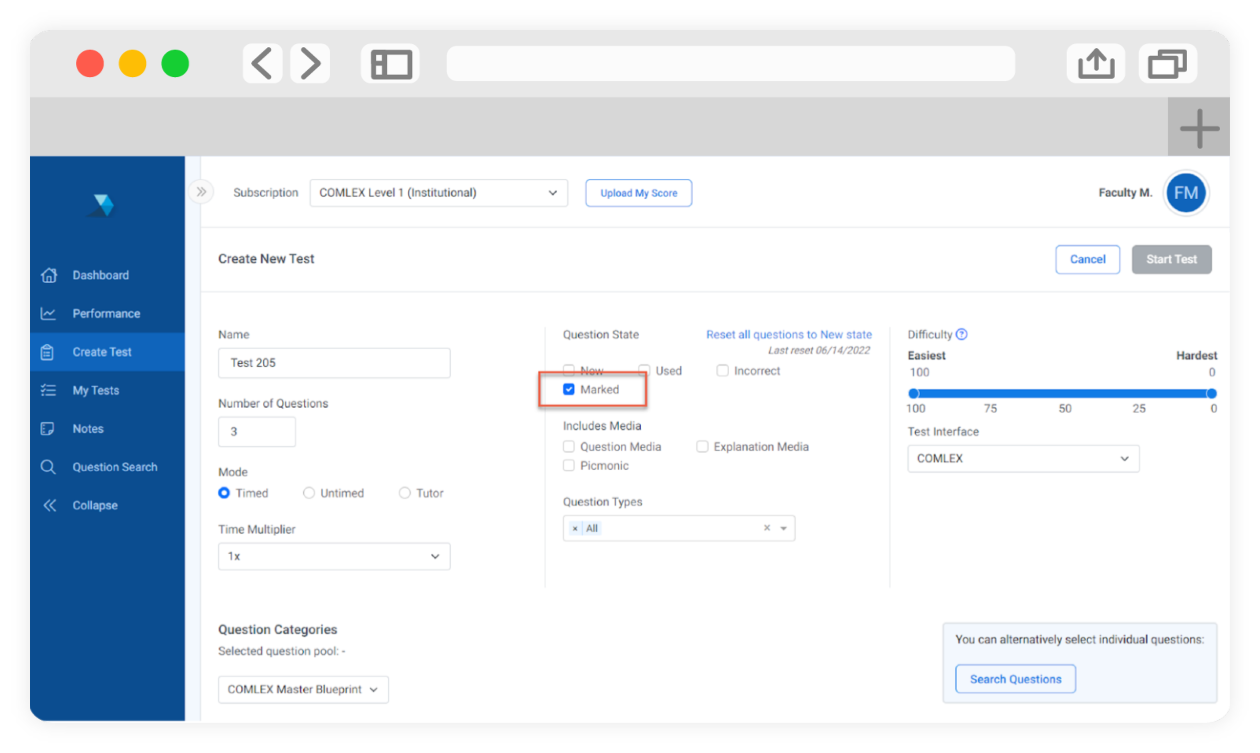
#2 Pair marking questions with the Notes functionality to take notes during study sessions where Tutor Mode is utilized. Jot down your thought process for reflection later, whether immediately following the test or when revisiting them in the weeks immediately leading up to your real-world exam.
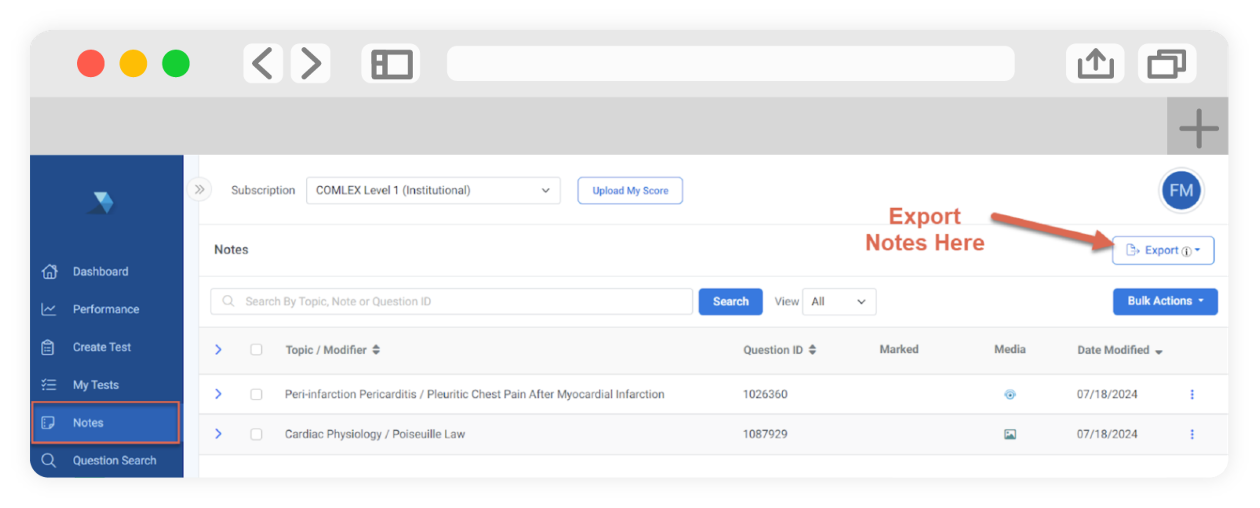
#3 When taking tests in Timed Mode, wait until the test review to use the Notes feature to recall your thought processes on how you selected the answer you chose and not disrupt the simulation of the actual test—you won’t take notes when you are sitting for the real thing!
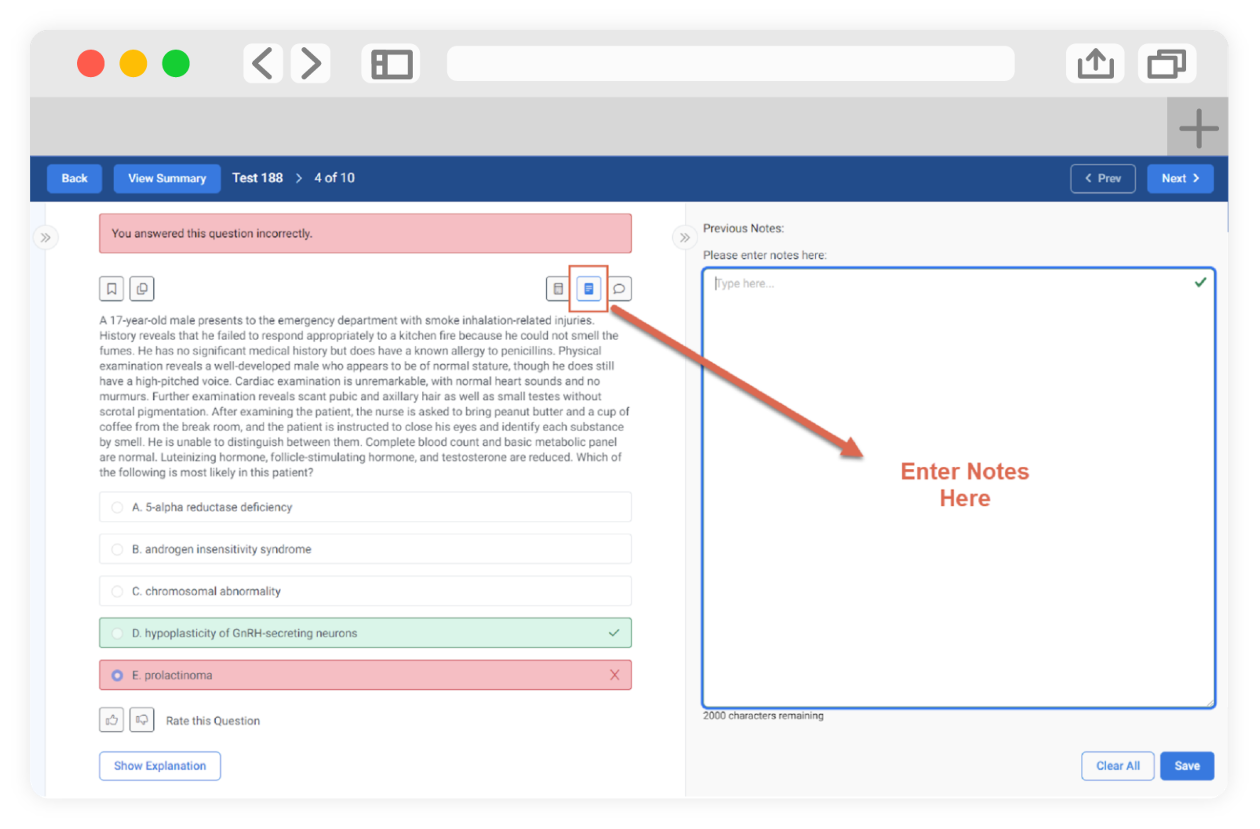
Using Self-reflection and Practice Exams to Identify Focus Areas
Simulating the actual exam can help build exam stamina and also provide valuable information about your strengths, weaknesses, and overall exam preparedness. TrueLearn provides mock assessments—included with institutional subscriptions and available for learners to purchase—to emulate the content and conditions of the real-world exam. The insights gained from TrueLearn’s mock assessments can identify content areas needing improvement. Use that to guide your study efforts, especially in the final 60 days before the exam. Maximize the benefits by integrating self-reflection when reviewing your performance on mock assessments. Here are 2 things you can do:
#1 Reflect on your performance data to track improvements and adjust your study plans accordingly. Reviewing challenging questions and the feedback provided helps you understand your mistakes and learn from them, avoiding similar errors in the future.
#2 Just like with low-stakes practice tests, utilize the Mark feature to flag questions for further review and the Notes feature to record your thought process and insights observed when reviewing missed questions post-assessment (again, we don’t recommend taking notes during a timed exam). This reflective practice enhances your overall understanding of the material and ensures you are well-prepared for your exam.
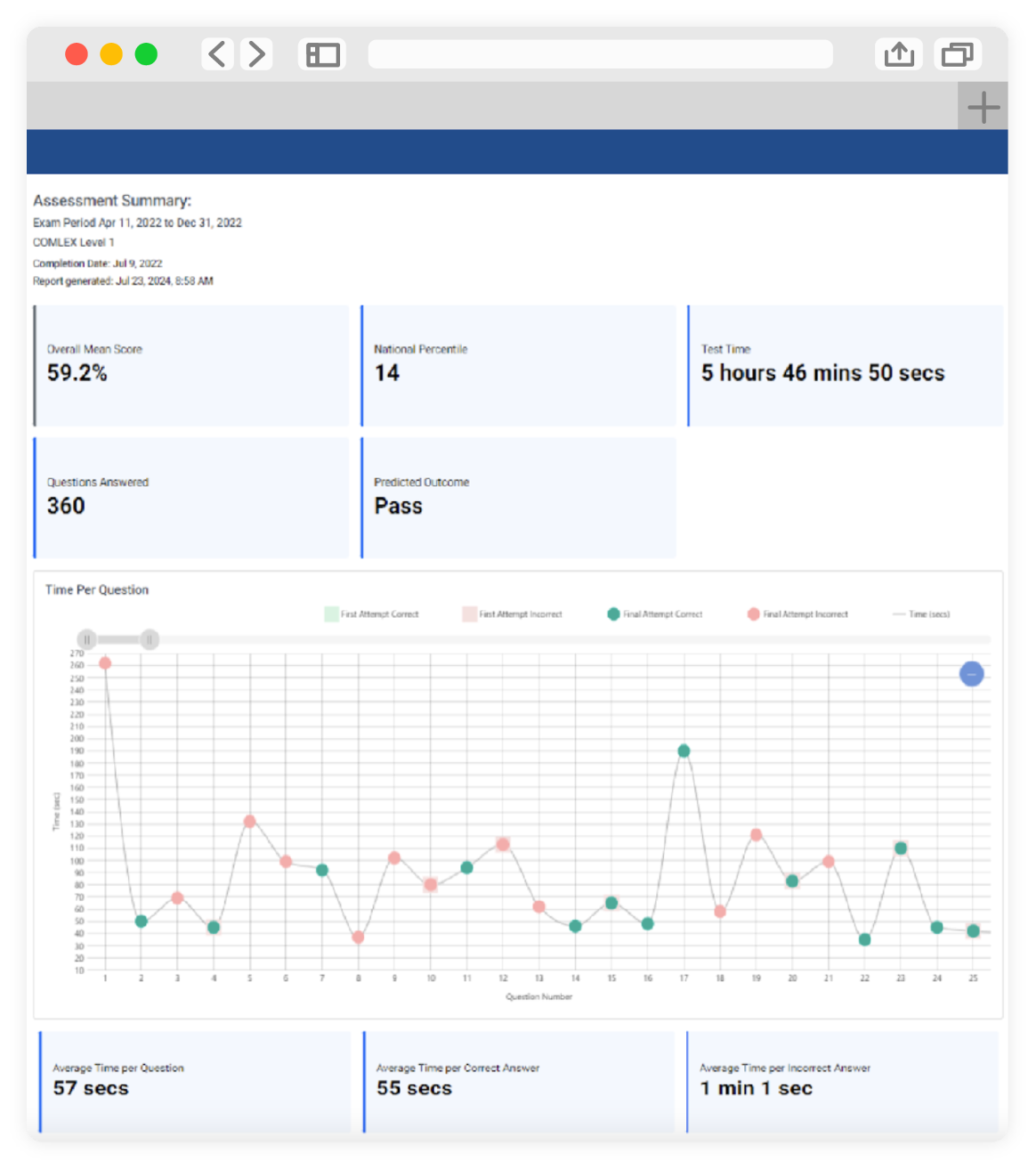

How TrueLearn Can Help You Monitor Trends and Identify Areas for Improvement
Not only does TrueLearn equip you with a SmartBank of board-style practice questions to help you engage in active learning, but it also provides a performance dashboard that consolidates your performance across all practice tests, faculty-assigned quizzes, and mock assessments to help you identify learning gaps and gauge overall exam readiness. Set and track progress toward your goal percentile and incorporate self-reflection into your use of the performance dashboard to help you become a more effective learner.
Integrating TrueLearn’s practice tests and mock assessments into your study plans, and leveraging the detailed performance feedback in the dashboard, can significantly enhance your academic outcomes. Pairing these tools with regular self-reflection will further maximize your learning potential, helping you build resilience, scaffold knowledge, and cultivate lifelong learning habits.
